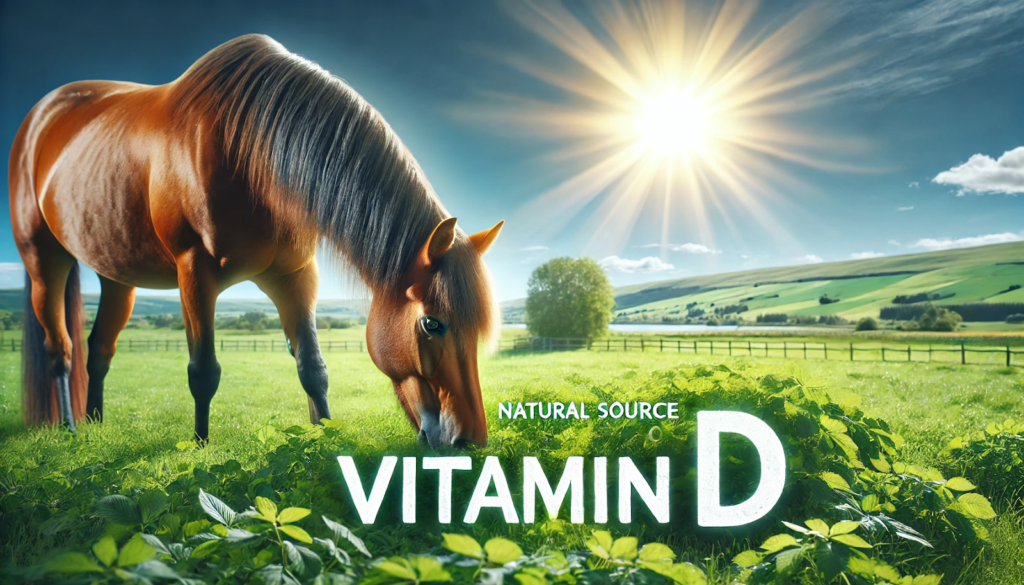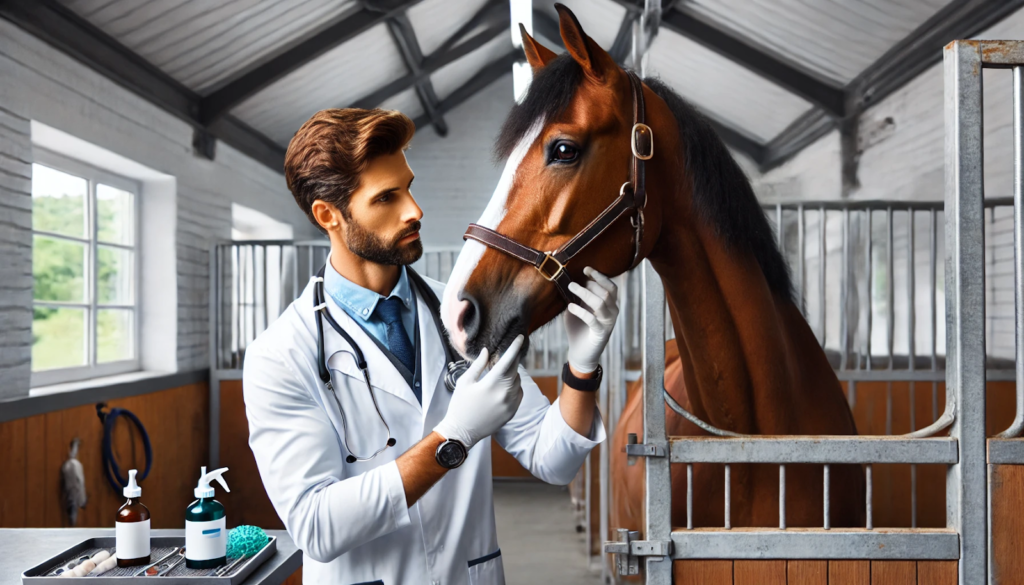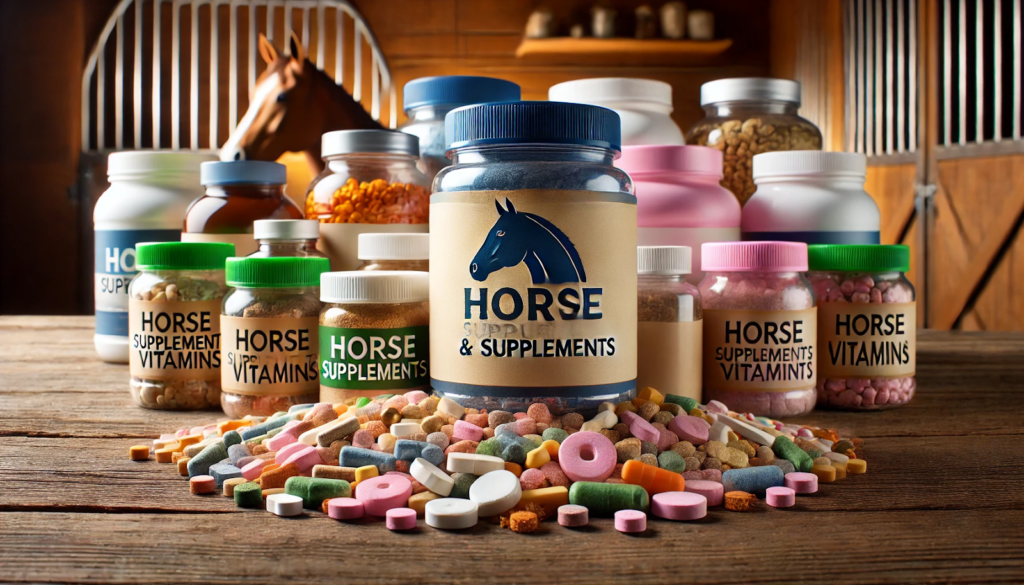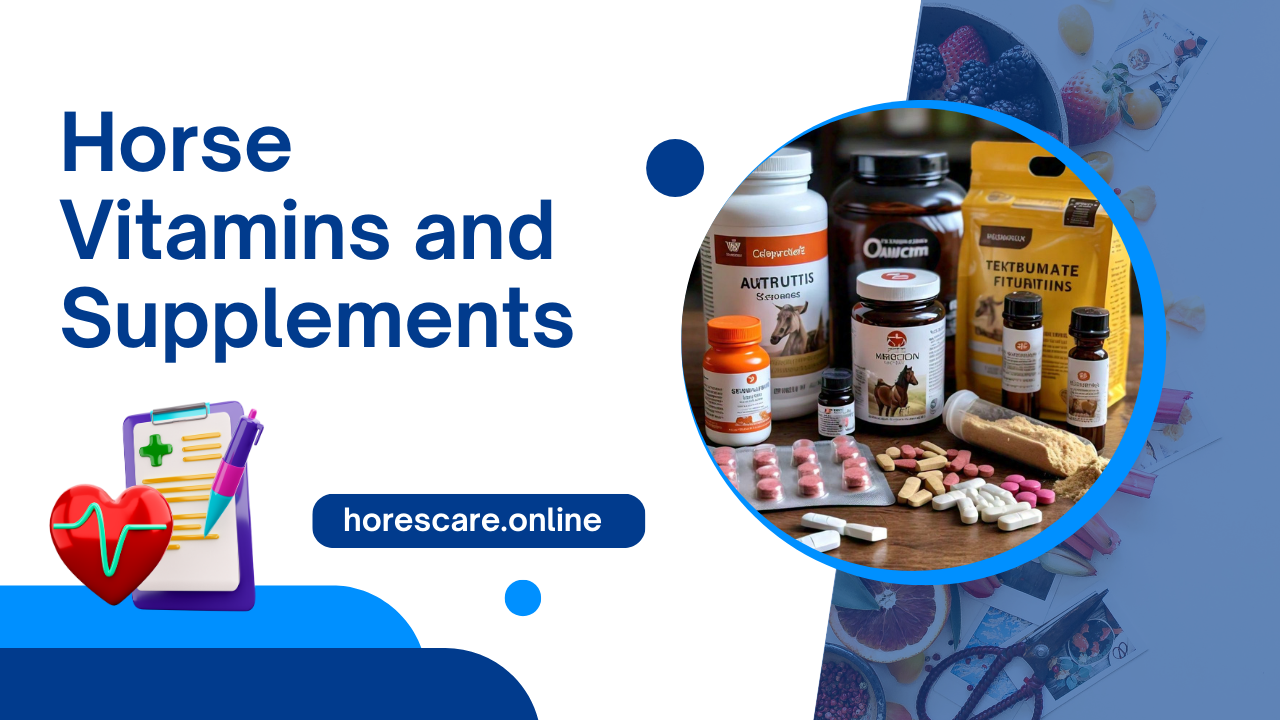Vitamin A:
Essential for sharp vision, resilient skin, and a strong immune system, vitamin A should not be overlooked. Especially during winter or for horses lacking fresh green feed, supplementing vitamin A is crucial.
Vitamin D:
This essential nutrient helps in bone formation by facilitating the absorption of calcium and is generally synthesized when horses are exposed to sunlight. Supplemental vitamin D may be necessary during seasons with limited sunlight exposure.

Here is our related guide, you may like:
Horse Racing: A Professional Way to Riding
Vitamin E:
An important antioxidant, Vitamin E supports immune health, muscle function, and recovery from physical exertion. Horses with limited access to fresh pasture might require extra vitamin E.
Electrolytes:
They play a pivotal role in muscle function and maintaining fluid balance, much like they do in humans. Supplementing electrolytes is particularly important for horses that undergo rigorous training or are exposed to high temperatures.
Omega Fatty Acids:
Adding omega-3 and omega-6 fatty acids to your horse’s diet can dramatically improve skin health, joint function, and reduce inflammation.
When Should You Supplement?
Consider supplementing your horse’s diet when specific nutrients are lacking or when their health condition necessitates additional nutrients.
It’s always best to consult with a veterinarian to customize supplements based on your horse’s individual health requirements and to avoid the risks associated with excessive supplementation.

Choosing the Right Supplements
Navigating through the myriad of equine supplements can be daunting. Conduct a thorough blood analysis with your veterinarian to pinpoint deficiencies before choosing supplements.
Opt for well-established brands that are transparent about their ingredients and manufacturing processes.

Conclusion
Enhancing your horse’s diet with the appropriate supplements can significantly impact their health.
By understanding Horse’s nutritional needs and selecting quality supplements, you ensure they receive the best care. Always prioritize professional guidance when planning your horse’s nutritional regimen.
Must to Visit
For deep insights related to horses feel free to visit us on:
HoresCare
More Tips for Optimal Horse Care
Regular exercise, consistent veterinary check-ups, and diligent grooming are as important as proper nutrition. Stay informed by engaging with the latest equine studies and advice from seasoned horse professionals.



